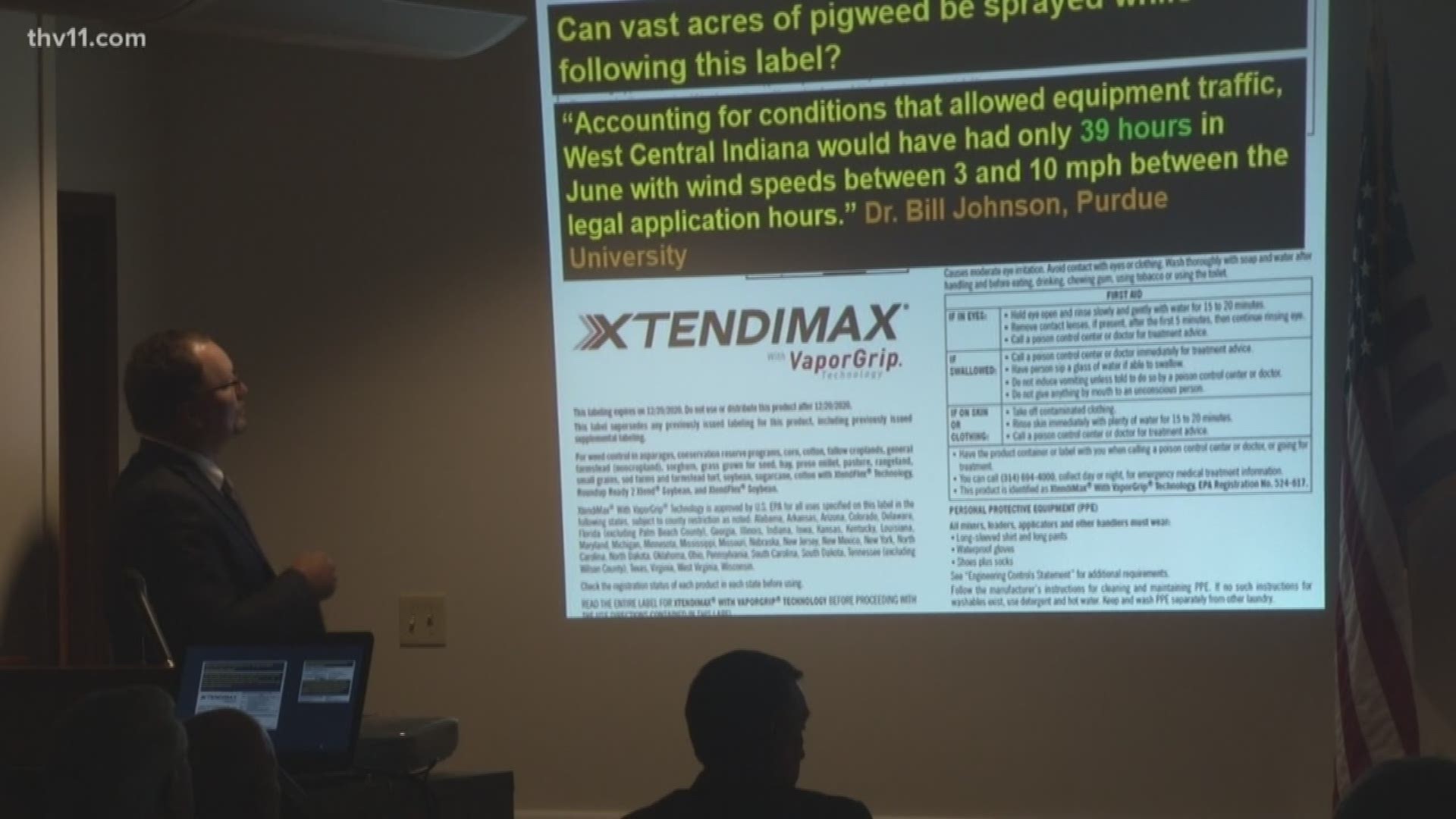LITTLE ROCK, Ark. (KTHV) - The controversial use of the agricultural weed-killer Dicamba drew an overflow crowd to a meeting of the Arkansas Plant Board, where members decided to establish a new restriction period for when it could be applied to crops.
The debate over the damage the chemical may cause has been a hot topic for two years, as different formulations of the herbicide came on the market and Dicambra resistant seeds were developed to allow its use. But stubborn weeds are adapting and certain mixtures are proving to be volatile and spreading beyond target areas in nation’s soybean fields.
“Every time I do this research whether it be in a grower field or a one-acre plot, we see symptoms,” said Dr. Jason Norsworthy, a professor and chair of the weed science division at the University of Arkansas.
After listening to Norsworthy’s presentation, which included evidence that Dicamba becomes more volatile the warmer the temperature gets, the board narrowly passed a motion to restrict Dicmabra spraying between May 21st-Oct 31st in 2019. A subcommittee had asked for a later date while others petitioned for an earlier cut-off. The May 21st date represented a compromise.
Norsworthy said he only wanted to present the science without delivering a personal opinion, but he warned the board that alternatives will need to be developed beyond adjusting dates each year.
“If we cannot have systems that co-exist we might as well give up and go home,” he said. “One thing is for certain, 10 years from now none [of the current Dicambra products] are going to work.”
There is also a difference of opinion among scientist and government regulators over buffer zones for spraying Dicamba. The board also passed motions to set those standards for the next growing season.
Norsworthy and others also pointed out that enforcement and fines needed to have teeth. Among the recommendations was a plan for $25,000 fines for spraying during the restricted period.

